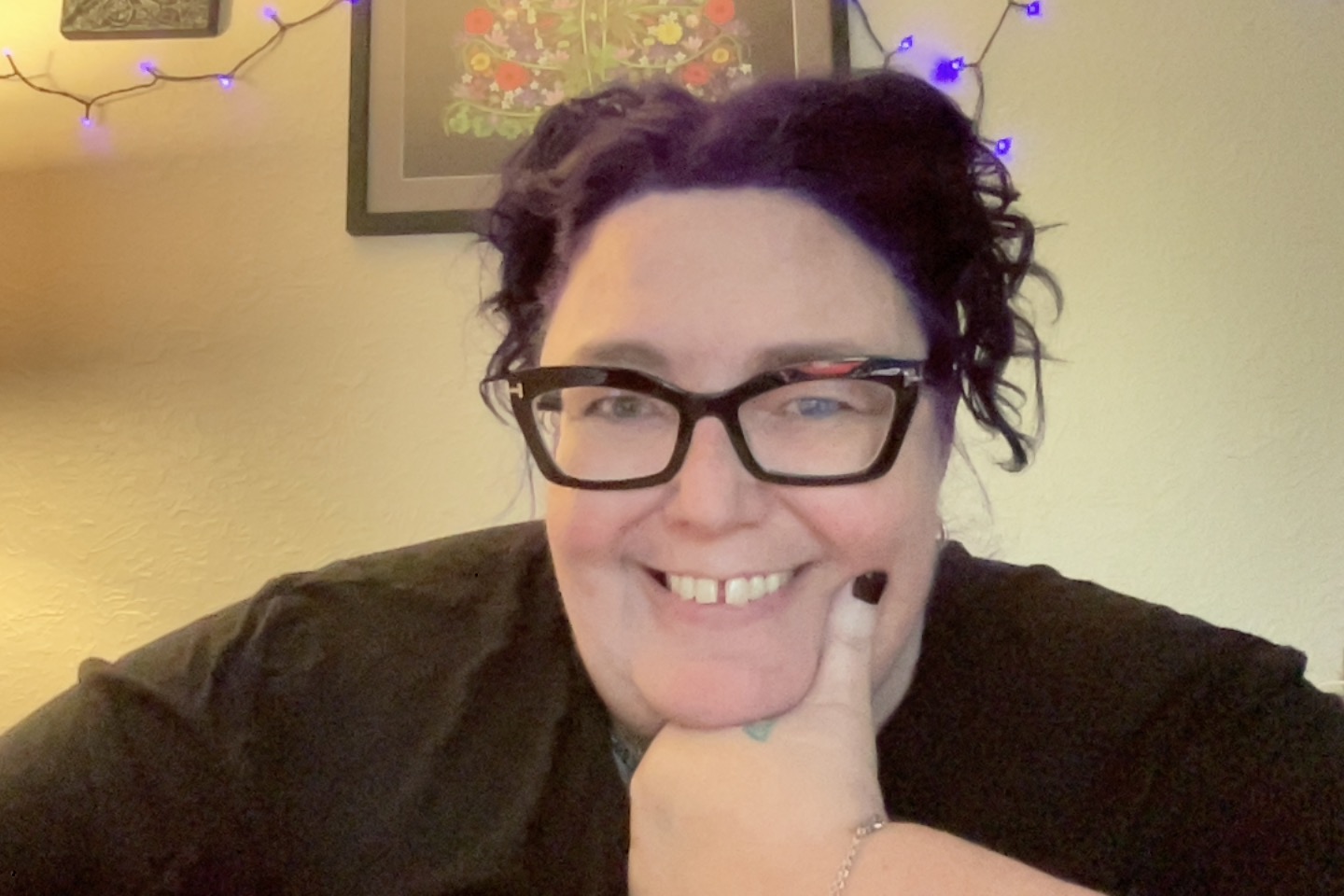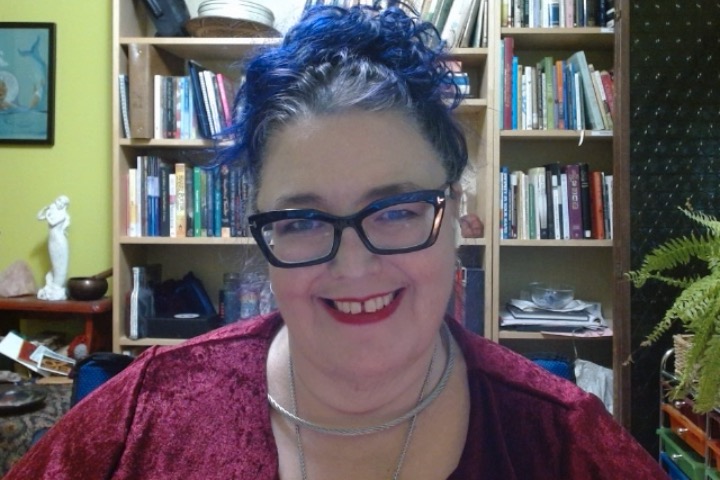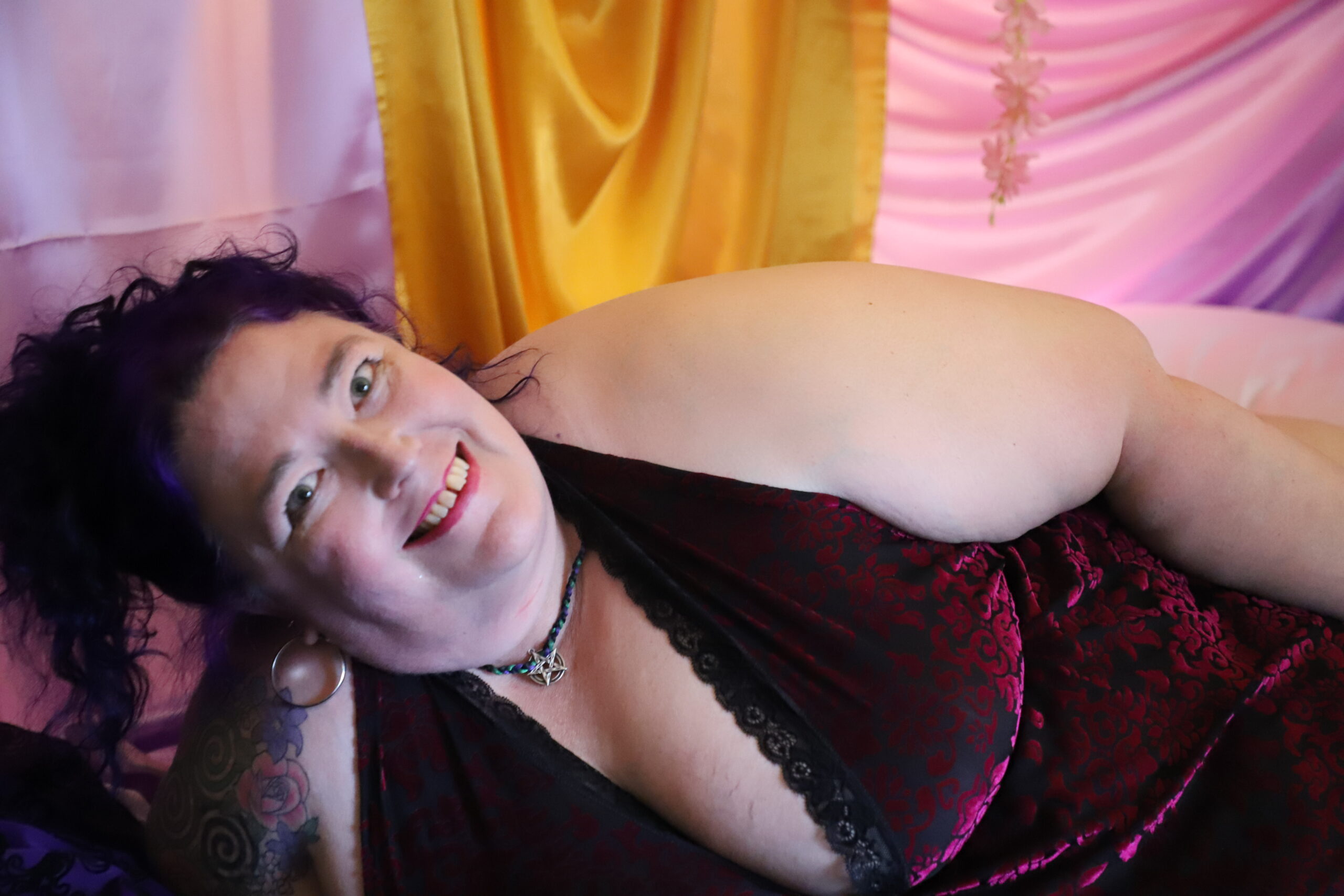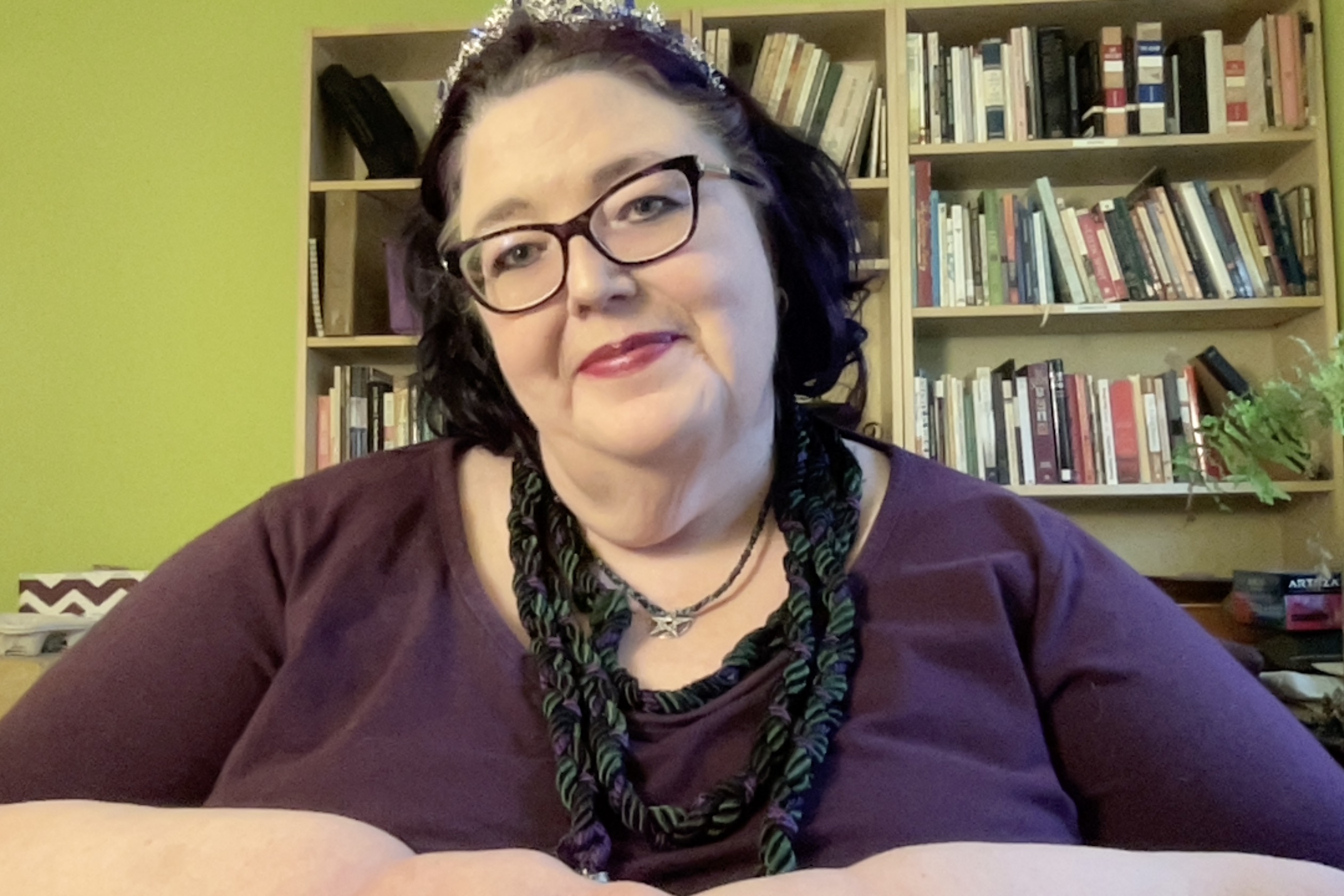“Everybody’s been there
Everybody’s been stared down by the enemy.
Fallen for the fear
And longed to disappear and
Bowed down to the mighty.
But don’t run! Stop holding your tongue!
….And since your history of silence
Won’t do you any good.
Did you think it would?
Let your words be anything but empty!
Why don’t you tell them the truth?!”
Sara Bareilles “Brave”
Here’s the thing: Every time I’ve told the hard truths, someone, somewhere has told me it spoke to them. Longing to disappear, as Bareilles writes in her song, “Brave,” has been about both my body and my voice. “Brave” reminds me that someone, somewhere needs to hear my story. That a history of silence doesn’t do any of us any good.
This piece is about intentional weight loss and its complexities in my life. I totally understand if you don’t want to read past this paragraph. Be well, friend, be blessed, and know that I support your choice not to read about intentional weight loss ever.
So What’s Up?
I’ve started taking one of the GLP-1 agonists, the class of drugs known as semaglutides. They are sometimes prescribed to help manage insulin and bring down A1C numbers–to manage and even out blood glucose–in people with type 2 diabetes. And they are also prescribed, both on-label and off-, for intentional weight loss. They have been hyped by small-bodied influencers and celebrities to the point that there was a shortage. They are expensive sometimes even with insurance, keeping them out of reach of many people who could benefit from them.
There are all kinds of things to say about them and how problematic they can be. And for various reasons, I have chosen to take one of them. And I have chosen it even though, and maybe because, I love my body as it is.
How Dare I Love This Body?
I had a yoga teacher, Mack, very invested in fat liberation, who used to say that being fat was better than being small. I, at over 500 pounds, offered a caveat. I would say that I knew there were things about my life that would be simpler if I were smaller, though I was (and am) NOT willing to do the Diet Road to Hell ever again. The age-old instruction of “lifestyle changes” and “diet and exercise” DO NOT WORK. They don’t. They just don’t, friends. For 90% and more, over the course of five years or more, they do not work. And in my case, as with many people, diets were always a recipe for gaining back whatever I had lost and more.
I love my body now. The culture says this love is impossible, unethical, “promotes obesity” and contributes to a public health crisis. How can I possibly know joy, pleasure, satisfaction, delight, and even GRATITUDE for a body this big?! How do I DARE to be happy in the body I have?!
Friends, my body has done and is doing all kinds of things with/for/as me, and I am grateful for the millions of events that have to coexist to make it so I can wake up in the morning. I have learned to delight in its softness, to run my own hands along its bumps and curves and places that need more tender care and places that are just sexy as hell. I have come to a place where I can give myself over to a lover and not be worrying about my fat all the time or frozen in trauma response, but really giving over to pleasure. I have known my wife for a mostly wonderful, and lately just delightful, twenty-five years. I have a lover who is also charming and sweet and considerate. I am slowly walking and climbing stairs and doing all kinds of things I couldn’t do for the last seven years or so. I adore my dozens and dozens of friends who make my life so much better than it would be without them.
And I have been able to eat what I wanted to eat when I was in touch with the question, “What do I want?” or my favorite, “What is the Food of Life?” I’ve gotten to the place where I mostly don’t demonize or moralize about food’s identities. Good, bad, clean and unclean foods are just not part of how I think about food anymore. Usually, however, I have been disconnected from the question of what I really wanted or needed to eat or how much. Practicing–or trying to practice–intuitive eating has been a big piece of healing from dieting and from fat-hating culture.
What Could Happen?
I noted to Mack that as much as I loved what my body could do, that I also knew that if I were smaller, I’d have more access to all kinds of things. It’s not right that access is denied to me now, but it is. And if I were smaller, I’d simply experience less of the daily effects of fat oppression.
What do I mean? Well, children could be less likely to stare or point or blurt things out at me – which they do now. Adults could be less likely to stare and then turn their faces away from me. There might be public chairs I’d feel secure in sitting in. I could MAYBE, maybe sit at a picnic table with attached benches. (Gods, but I hate those things and I swear every Portland place with outdoor seating has them. Well, except for the Tin Shed, bless it.)
I could pay less of the fat tax. My clothes could be more accessible and cost less per unit of fabric. I could have more clothes available to me that were not made in sweatshops. I could have more clothes available to me, period. Home furniture, massage tables, doctor’s exam tables, and office furniture might all be more manageable or possible for me to use.
Yet, given what I knew about diets, given the many times I’d dieted and rebounded, given how relatively at ease I have been in my body, I have chosen to spend my energy working on the macro level. I work for access, raise awareness of fat liberation, demand clinically appropriate care, and ask for fucking chairs without arms in the cardiology office, ffs.
Is it kind of ironic that I’ve made this choice now, or maybe is it just right? The changes in science combined with my overall centeredness and happiness have come together. I have been thinking about my psych meds and the meds I take for my thyroid. I will be taking them, or something like them, for the rest of my life. So I don’t feel bad about taking this med for a long time, maybe even for the rest of my life. We have enough data on unwanted effects that I felt comfortable giving it a try. (Happily, my unwanted effects have been few, and they have been manageable.)
However, I do feel a pressure to perform for the body liberation movement. To stay as fat as I am without concern because of all the shit that fat people go through, and to stay as fat as I am so that I’m not saying that fat bodies are bad or broken or unhealthy – OR that health is something we owe to anyone. I’ve realized that this pressure comes mainly from a certain set of folks who do not represent the most important people in my life. It also comes from my own habit of black-and-white thinking. That if I am for body liberation, I must leave my body as it is, to whatever it does and to hell with scientific corner-turning or my desire to gain some access in an oppressive society. And that if decide to change anything about how I am in and as my body, I am betraying liberationist values.
How Shall We All Behave Together?
There are some things I will not do. I will not be posting pictures for the purposes of “before-and-after.” Barf. This is NOT a virtue journey. I will still post photos, because I will still be a fat person with a face and I deserve to be seen! I do not intend to mention how much I weigh or how much weight I have lost, though I do think it’s entirely likely I’ll talk about my clothes.
And please, please, for the love of all that is holy, refrain from insisting that a smaller body is better than a bigger one. It’s not. There are conditions under which I could imagine being at this same weight but not taking this medication. If I didn’t have some of the health conditions that are often co-occurring with fatness, or that are eased by weighing less. If my mobility were better…Oh, can you imagine how much I want to walk in the woods? If clothes and chairs and tables were more accessible to me. And hey, if I weren’t more likely to get fired or not promoted or not hired at all. If I were less likely to receive EGREGIOUSLY bad health”care.” Sure.
But there are both culture/societal and health/mobility pressures on my body. And in the end, if we are for body liberation, are we not for bodily autonomy? Are we not for people doing what they need to do, both on the micro and macro levels, to manage living under oppression? Are we not for people making careful, informed choices?
Weight loss medications are certainly not the whole answer. But for me, right now, they are part of an answer.
What do you think? I’m curious. Be gentle and compassionate (toward me, yourself, and other readers) in the comments, and know that the comments are moderated. Do not, as I said above, in any way claim that being thin is better than being fat. Do not congratulate me for doing something that will make my loved ones worry less or something equally concern trolling.
As always feel free to remark on my writing, what resonates or doesn’t resonate with you, how you feel having read this piece, or something about your own experience (clearly stated as your experience).
Friends, I love you, and I am so glad that my blogging is getting unstuck. It’s been a long coupla months!




Thank you for writing this. I’m on a similar journey, although the med I’m taking is also helping manage my diabetes. But I do want the weight loss associated with it. I want it not because my body is bad, but because I want to move more, to fit more clothing, to deal with just slightly less oppression on a daily basis. And that’s valid. For both of us.
I hear you about wanting to walk in the woods; I miss that so much I barely let myself think of it anymore. I want to be able to go to event sites and Renaissance festivals. I want freedom. Freedom from the physical limitations my body currently imposes, and freedom from at least some of the social limitations imposed on me. And I feel like those are valid things for both of us to want.
Seeing you write about it publicly is incredibly affirming. You have a wonderful voice, and I’m deeply grateful for you using it in this way.
Thank you. 💗
Thank you for sharing your witness and testimony with us, Beloved.
It’s all a journey, and this one is yours.
I’m grateful to know, and to know you.
This reminds me a lot of the complexity around applied behavioral therapy for autism, when it intersects with marginalized bodies.
ABA is effectively compliance programming where compliance is to an allistic norm, and as such is recognized by a lot of autistics as deeply harmful, traumatic in ways that profoundly affect future wellbeing. And. Black autistic boys in particular risk their lives when they do not comply with white allistic norms. ABA keeps Black autistic kids alive. That doesn’t mean it’s not a terrible thing at the same time. But having to be compliant to dominant norms is already a thing for marginalized people. Is the freedom to stim worth your kid’s life? Can we even talk about eliminating ABA before Black bodies stop being treated as a threat? Systems-wise, if we “fix” one thing, we make the more *at risk of harm* people at risk for *another* worse risk.
Individuals need to be able to make choices about risk, quality of life, joy. And we need to be able to make the better of two choices *individually* even when all the choices are systematically bad. And the more marginalized people are, the more it’s not anyone less marginalized business to have an opinion.
I’m personally horrified by ABA, both at an individual and systemic level. And. I am absolutely not distressed about a Black parent choosing ABA for their child, knowing the complexity, knowing the harm mitigation they need to do in all dimensions of life. I will have their back, advocate for them, whatever they need.
Instead, I reserve my heartbreak and outrage for the systems and the whole damn real world situations that continue to make that decision the absolutely most loving, caring, knowledgeable, and appropriate choice they can possibly make. My effort is pointed at the systems not the individuals, and I would love to see the day when BIPOC parents (and anyone more marginalized) can afford to make the same choices as more privileged parents get to have all the options about.
Wow. This is really powerful. I have felt this way about famous Black women getting weight loss surgery, kinda. Damaging, constraining, life-threatening, but what do I know about the convergence, the level, the freighted reality of their lives.
I think I see this choice, my choice, as a little bit different because it doesn’t look to be as damaging as ABA or WLS are. Still, I _think_ I hear what you mean about individual choices.
Agreed. Same pattern, but basically group A thinks action Z is bad, yet group B has to deal with harsher realities than A does, so has the right to make decisions to make their lives sustainable and good.
For sure not meaning ABA = IWL for harm (I have no way to compare them anyway, I lack the knowledge base).
Love this post! I have also been taking a GLP-1 agonist and I have been reluctant/afraid to tell anyone because of the potential stigma. I was also fine with my body’s size, BUT had increasingly high blood pressure and a family history of heart disease. I want to live as long as I can!! Thank you for speaking out.
Thank you for saying so many things my Beloved husband has been saying as he has been navigating many of the same issues. We are each having n our own journey as we are also a part of a society that is oppressive in so many ways. Both/and! May we find ways to care for ourselves and each other with expansive compassion.
Thank you, dear one, for your holistic, ‘walking all the way around’ your feelings and thoughts on this topic. When we yearn to change our bodies or ourselves, it can bring up such conflicted feelings that we’re betraying ourselves or our values. You express this both/and with honesty, compassion, and strength. You open my mind and heart with your writing. Keep going sister!
You’re amazing Catharine. All of who you are. I’m grateful for you and your witness for the love of bodies. Thank you. Wishing that whatever you hope this medicine might do, it does it, and without complication. ❤️
Best wishes with your ongoing ministry and blogging. Bodies change over time, by choice and not. I am limited by some age-related changes following broken bones in my 70s. I am getting back to some yard upkeep/gardening and that feels so good! “poco a poco” as the saying goes, even though I’m still aging.
Gardening is something I’ll use to love so much. I doubt I’ll ever kneel in the earth again, but maybe be able to put some plants in one day? (Gosh, it feels so vulnerable to admit that!)
Oh, beauty, I am drinking this in. your words, ministry, this post, this is all nourishing to me. I don’t know how / when I will be relieved, consistently, of the brutality of hurting myself with food — borne in body dysmorphia, self-medication, continuing residue of PTSD … when, oh when. We need you to survive, blessed one. Thank you
yes to more bodily autonomy. Hugs for the hard of this decision. Love for you on your journey.
Your post inspired me to this on my own blog: https://theresauuco.wordpress.com/2023/07/23/weekly-bread-232/
Thank you so much. I’m so glad I could inspire you. One TW for readers: the end of the linked post has specific weight loss numbers.